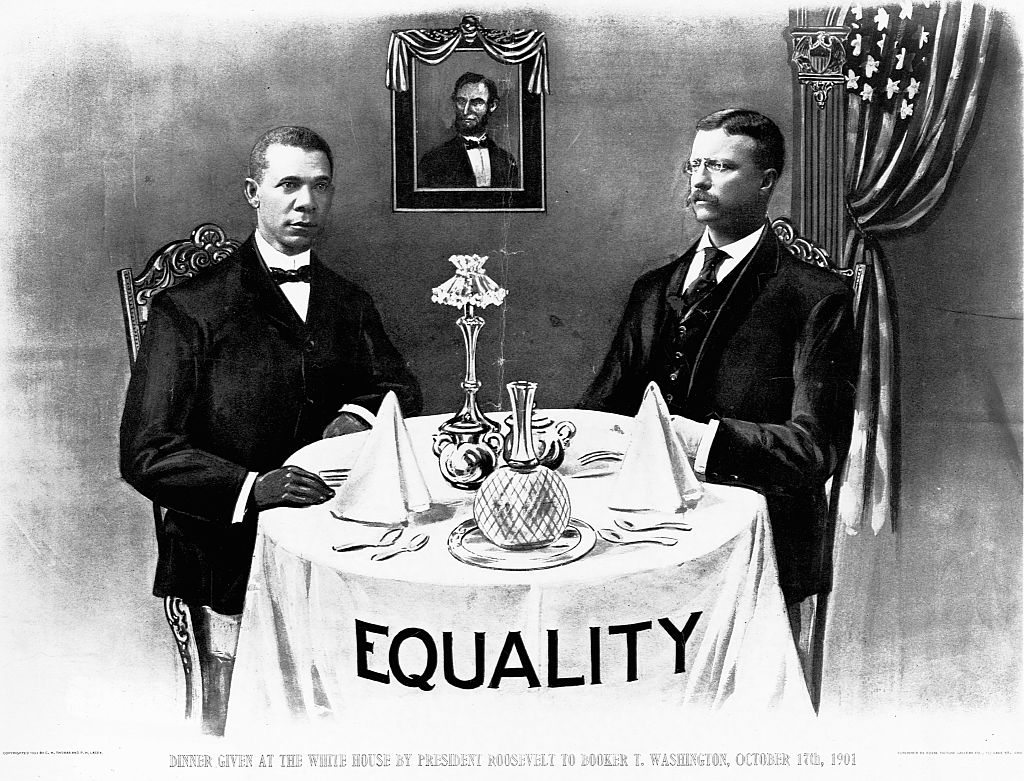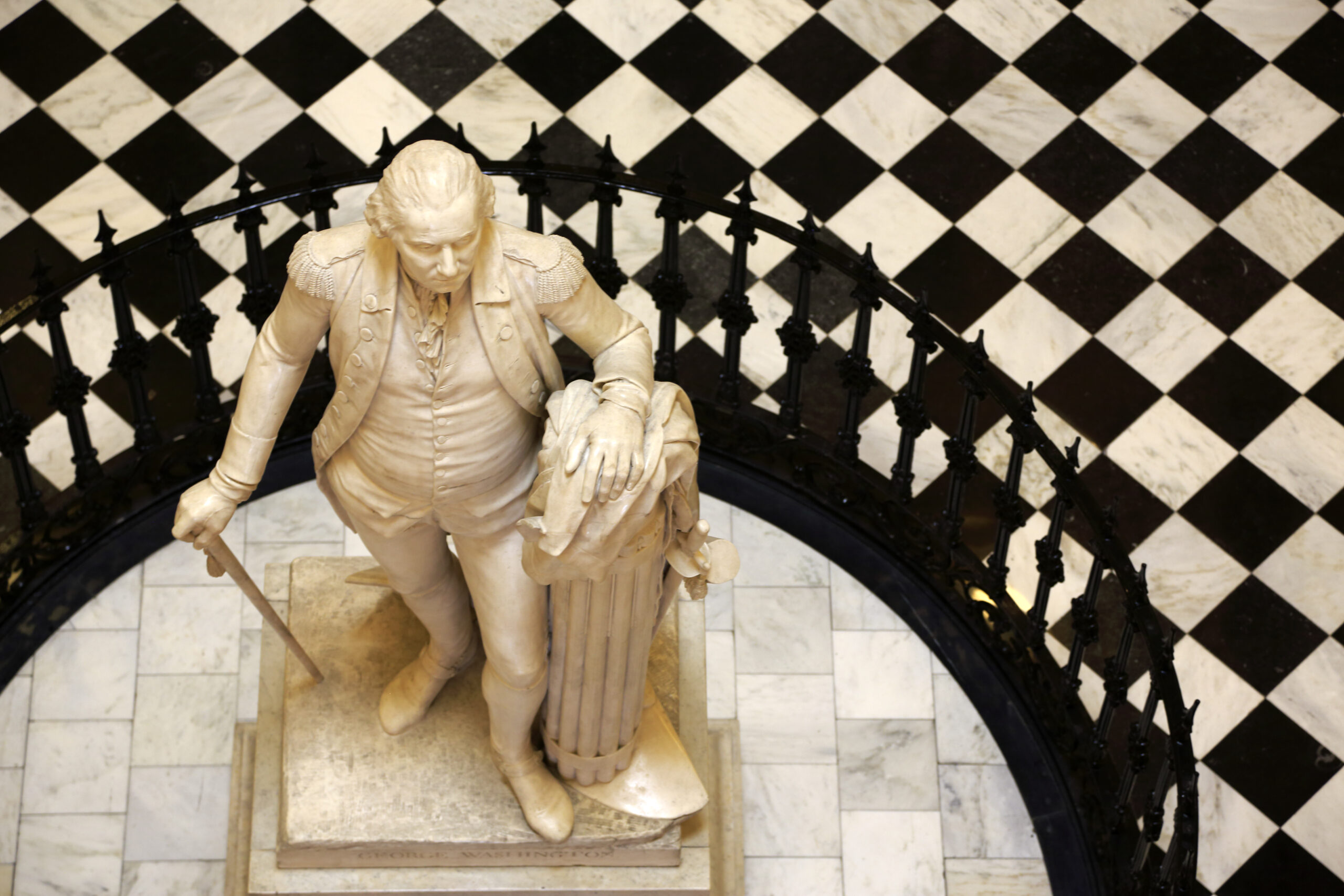Renouncing race is the answer to restoring our humanity.
Reparations and Property Rights

Undoing a corrupt eminent domain case doesn’t justify society-wide wealth redistribution.
The settlement of a long-running suit against the wealthy seaside town of Manhattan Beach, California is being hailed as a victory for justice. Last July, the Los Angeles Registrar-Recorder turned over to Anthony Bruce the deed to a valuable piece of beachfront property that had been seized from his great-great-grandparents 95 years ago by the government of Manhattan Beach, using its power of eminent domain on the ground that the Bruce property, and adjacent ones, were needed for a park. But all the landowners whose land was seized were black, and the seizure was really the product of outrageous racial animus. Bruce’s ancestors, Willa and Charles Bruce, had purchased shoreline property in 1912 in order to establish a small resort where black people could eat, dance, and swim.
The Bruces’ thriving business encouraged other black families to purchase nearby property, only to cause some of their white neighbors to complain about a “Negro invasion,” according to historian Rose Jefferson’s African American Leisure Sites During the Jim Crow Era. A report commissioned by Manhattan Beach authorities in 2021 cited a 1928 news story describing fires, cross burnings, dynamite, and bullets aimed at driving black people out of town. Only after the Bruces spent years in court fighting the condemnation of their property did they settle in 1927 for a sale price of $14,500.
Unfortunately, some celebrants of the just victory of the Bruces’ descendants are drawing the wrong lesson from this case, citing it as exemplifying the case for “reparations” for all descendants of slaves. But the Bruces’ case had nothing to do with slavery. Rather, the family sued to reclaim something that had been wrongly taken from them, and it is regrettable that it took several generations for the injustice to be (in part) remedied. (In fact, rather than attempt to reconstruct the original resort, the four Bruce heirs, now scattered across the U.S., decided to sell the property back to Manhattan Beach for $20 million.)
The wrong for which the Bruces received compensation was a discrete injury committed by a particular government body. To infer that non-black citizens of the United States as a whole owe reparations for injustices that were committed by the class of slaveowners, either in the states that retained slavery after the Founding era, or in the entire country prior to abolition, would mean punishing hundreds of millions of people who had no connection with slavery, or (in most cases) with the sometimes egregious discrimination that followed it, for sins committed by persons and government bodies that have no connection to them.
A large percentage of present-day Americans are immigrants or descendants of immigrants who arrived long after the end of slavery, never lived in the states where its practice had been widespread, and themselves were victimized by various forms of ethnic and religious discrimination, including by government, well into the twentieth century. And what about those who fought and often died to defeat the slavocracy in the Civil War: should their descendants be obliged to pay a second time for that cause?
To view the Bruce case in light of the reparations issue is to miss the point entirely. The real context for viewing the case is as an instance of the recurring abuse of eminent domain, which is supposed to be used only for condemning decrepit properties or for the sake of overwhelming public needs (e.g., a reservoir) rather than to satisfy private interests or prejudices. The most noteworthy case in this regard is Kelo v. City of New London (2005), in which the Supreme Court rejected an appeal of an eminent domain seizure of private homes so that they could be replaced by a privately owned industrial park from which the city hoped to reap added tax revenues. The decision disregarded the apparent meaning of the Fifth Amendment’s Takings Clause, which limits the confiscation of private property to public use.
The Kelo precedent, although it has never been overturned, generated the enactment by numerous states of laws aimed at restricting the use of eminent domain to strictly public purposes. But the broader lesson is the crucial importance of private property rights as a bulwark of freedom, and as an essential incentive and means for individuals to advance their lot in life—thus benefiting the public at large.
To tax present-day American citizens to “reimburse” the descendants of slaves for sins that neither those citizens, nor in many cases their antecedents, had any role is to subordinate their property rights to the contemporary obsession with rectifying the past by remaking the present. This impulse is essentially religious, with a fixation on slavery as the nation’s “original sin,” and even chiliastic, as it seeks to hasten a new golden age in which every social institution is relentlessly and minutely inspected for vestiges of racism. It is the same remaking drive that demands we rectify the bodies of toddlers to affirm their opinions of their genitals and acknowledge every paraphilia as a protected category of citizen.
Not only does every increase in taxes reduce the incentive to work; it has the ruinous effect on those seeking reparations of diverting their energies and aspirations from self-advancement to reliance on hoped-for government handouts. The example of Indian tribes who have come to rely on casinos for their income, thanks to special governmentally-awarded privileges, shows the ill effects of such policies.
The whole notion of reparations, transferred from its original, legal, and philosophical meaning of remedying a wrong that was done by discrete individuals, corporations, or government actors to other discrete individuals or their heirs, to making tens of millions of people “right” by taxing their fellow citizens, is based on an illusion that all the wrongs of history can be compensated for. Why not pursue reparations from the British under whose auspices slavery was introduced to the American colonies? Why is nobody speaking of seeking reparations from Spain and Portugal, to whose colonies the vast majority of African slaves were shipped to the Americas? Why not investigate the Indian tribes that some now wish to make right by giving back the land that Americans took from them: just how did they acquire their land in the first place—most likely from other tribes?
When the Times reported the recent return to a Jewish family of a work of art that had been stolen by the Nazis from their grandparents, the question was raised, “Why not then give reparations to black people for slavery,” especially in light of the larger reparations that the German government had given to Holocaust survivors and their descendants after World War Two? This analogy is as weak as the one that has been made in the Bruce case. The work of art had been taken from a specific family and was being returned to them. This simply has no connection to taxing today’s American citizens, of whatever race, many of whom (or their parents and grandparents) arrived long after slavery’s end.
To the extent that black people have been hampered in their advancement thanks to the legacy of slavery and oppression, what they deserve isn’t cash payments but better schools (which will be promoted by the expansion of charter schools and school choice programs), the elimination of state licensing laws that make it harder for those without a strong educational background to enter careers (like interior decorating and hair braiding) for which extensive training isn’t necessary, and a restoration of the 1996 welfare reforms that incentivize work rather than dependency.
As the great escaped slave, abolitionist, civil rights leader, and statesman Frederick Douglass remarked in an 1865 address to the Massachusetts Anti-Slavery Society, in response to the question “What shall we do with the Negro?” all that the black man asked was the “chance to stand on his own legs,” by liberating him and then getting out of his way. Though Douglass’s observation might need to be modified in light of America’s subsequent history, its forward-looking message of self-help is far more likely to boost both pride and achievement among less-advantaged minorities than continuing to demand reparations for past collective wrongs.
The American Mind presents a range of perspectives. Views are writers’ own and do not necessarily represent those of The Claremont Institute.
The American Mind is a publication of the Claremont Institute, a non-profit 501(c)(3) organization, dedicated to restoring the principles of the American Founding to their rightful, preeminent authority in our national life. Interested in supporting our work? Gifts to the Claremont Institute are tax-deductible.
Jack Smith’s case against Trump regarding his documents is unconstitutional.
On tradition, rights, and what justifies them.
The moral limits of our constitutional order.
Official conservatism would rather harumph about dissidence than address core issues.
Voters, not private litigants, should get to decide if Trump is re-elected in 2024.






